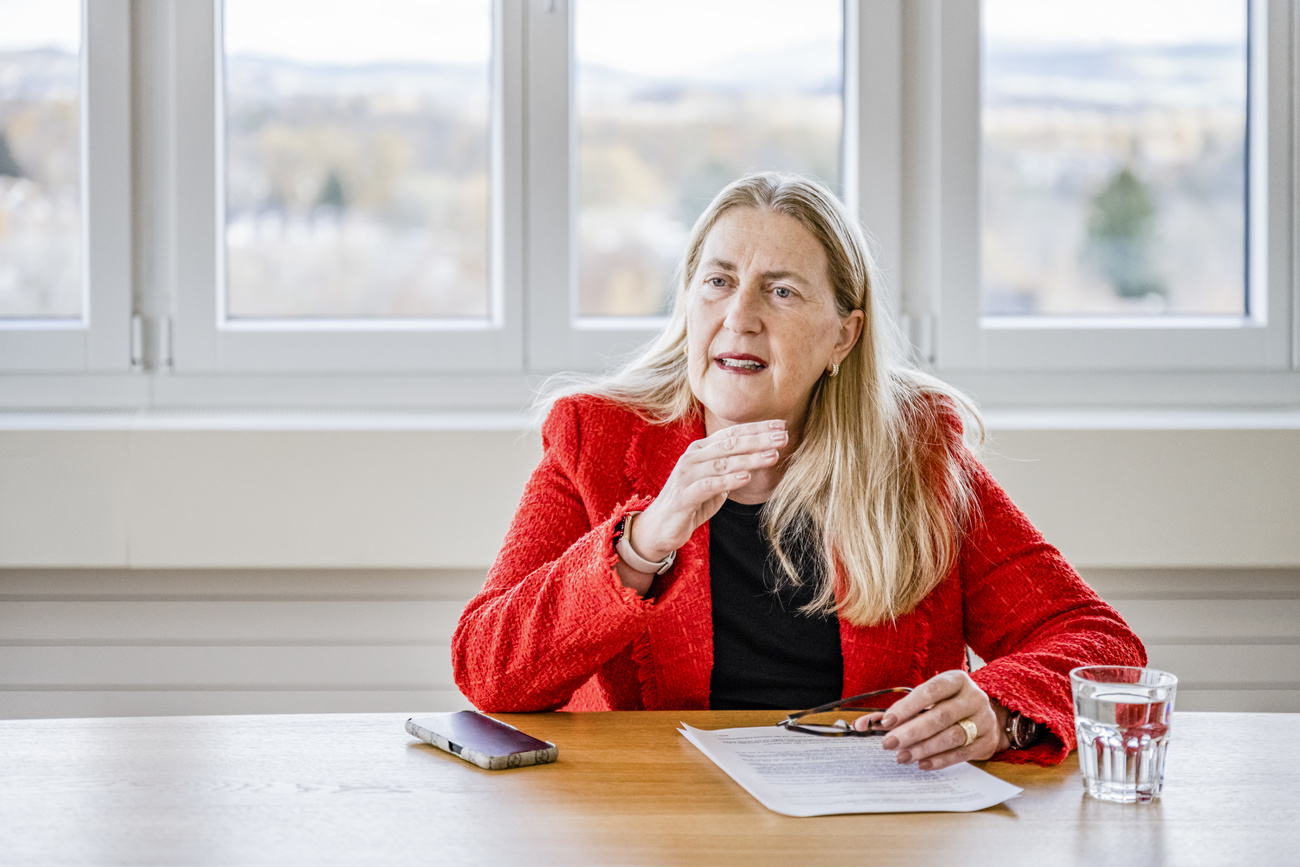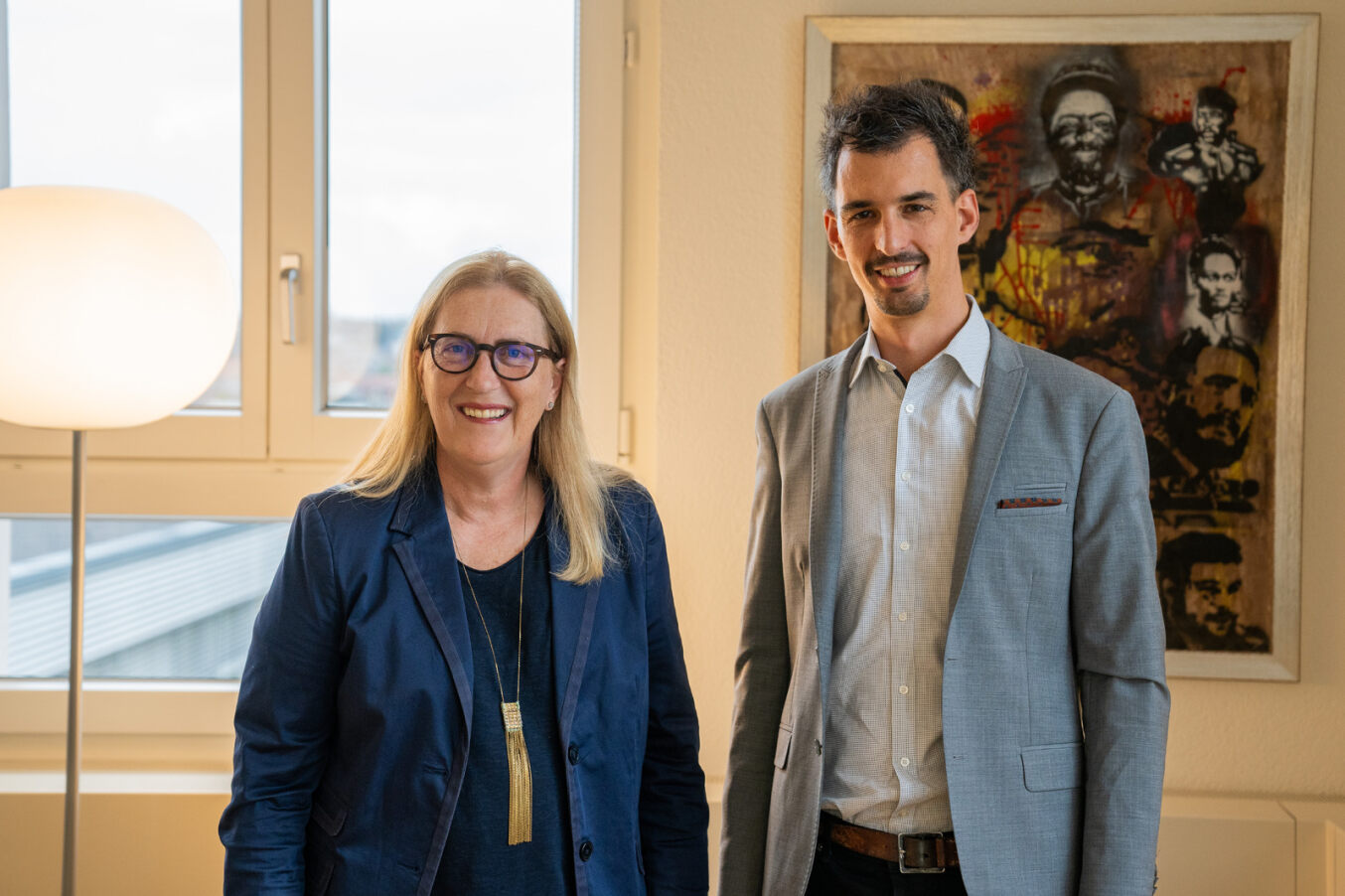
Swiss official rejects criticism of Russia sanctions

Switzerland has been criticised for doing too little to implement sanctions against Russian oligarchs and companies. Is there any truth behind these allegations? And why isn’t Switzerland taking part in the G7 working group on Russia?
Helene Budliger Artieda has represented Switzerland’s interests as ambassador in numerous countries, most recently in Thailand. A year ago, she beat 38 competitors to become head of the State Secretariat for Economic Affairs (SECO).
Budliger Artieda is responsible, among other duties, for implementing sanctions against Russia. In the Geldcast podcast, she explains why she finds allegations made against Switzerland by other countries to be baseless.
Looking back to when Russia invaded Ukraine in February 2022, only eight people in the Swiss federal administration were responsible for implementing sanctions against belligerent countries – far too few to deal with the many inquiries related to the war. There are now more than 20 people working on this task at SECO alone, plus dozens of other people, for example at the Financial Market Supervisory Authority (FINMA) or at banks.

Russian assets worth CHF7.5 billion ($8.5 billion) have already been blocked by Switzerland, plus CHF7.4 billion from the Russian central bank that has been frozen. Budliger Artieda is proud of these numbers, arguing that Switzerland has blocked significantly greater funds than many other countries.
That’s why she doesn’t understand when other countries criticise Switzerland. The United States ambassador to Bern, Scott Miller, told the Neue Zürcher Zeitung newspaper in March that Switzerland could do a lot more to implement sanctions against Russia. SECO could block up to an additional CHF100 billion, he suggested.
Budliger Artieda says such accusations are mainly issued from the political level and are hardly ever heard in exchange with colleagues from other countries’ administrations.
International criticism
It is unclear who is right. According to an estimate by the Swiss Bankers Association, there is around CHF150 billion of Russian assets in Switzerland – only 5% of which is currently blocked.
But Budliger Artieda emphasises that Switzerland is a constitutional nation. Her team should not freeze suspect assets in advance of sanctions, and it should be considered that there are also Russian funds that belong to non-sanctioned people. In addition, all individuals and companies can raise objections if their funds are blocked. “Naturally, we don’t want to keep losing court cases,” she says.
She also questions the estimated amount of Russian assets held in Swiss vaults. “I don’t know how the Bankers Association came up with their CHF150 billion.”
Switzerland was recently subject to international criticism for not being part of the G7 working group on sanctions against Russia despite receiving a formal invitation. Participation is currently being considered, the government recently announced. At the same time, the government recommended that parliament reject an initiative by Green Party politician Franziska Ryser, which demands Swiss participation in the G7 working group.
Budliger Artieda points out that there is already technical cooperation with G7 countries, which works well even without formal membership of the working group. And overall, Budliger Artieda is satisfied with how Russian sanctions are being implemented. She gives her team a grade of 5.5 out 6, which signifies “very good” on the Swiss scale.
Subscribe to the Geldcast update in English on YouTubeExternal link. And you can find many more episodes in German on iTunesExternal link, SpotifyExternal link, or wherever you get your podcasts.

In compliance with the JTI standards
More: SWI swissinfo.ch certified by the Journalism Trust Initiative





























You can find an overview of ongoing debates with our journalists here . Please join us!
If you want to start a conversation about a topic raised in this article or want to report factual errors, email us at english@swissinfo.ch.